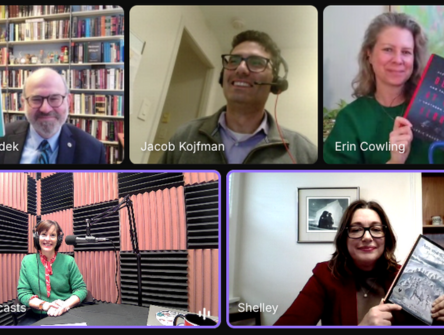Standing up for vulnerable litigants
It is very easy to turn a blind eye to areas of law that fall outside of our professional expertise. This is especially true of family law – but it would be a mistake to do so because we have a shared interest in ensuring the system functions properly.</p>

By all accounts, family law is in crisis right across Canada; some courts report that between 60 and 70 per cent of litigants represent themselves. As the CBA’s Equal Justice Report notes, self-represented parties typically experience poorer outcomes. The cost of family law trials, however, means litigation is inaccessible for everyone except the very rich or the very poor.
That’s not to say family law hasn’t changed for the better in some ways. It has adapted to reflect changing social norms, including reforms geared to the realities of same-sex couples, surrogacy laws and changing family dynamics.
In other ways, family law hasn’t changed nearly enough.
In its 1992 decision, Moge v. Moge, the Supreme Court of Canada recognized the specific financial impact of divorce on women, relying heavily on a body of social science evidence that existed at the time. Since then, social norms have shifted as more partners equitably share family responsibilities and society moves away from the traditional sole-breadwinner model.
From 1997 to 1999, the Special Joint Committee on Child Custody and Access studied the impact of family law on children. The main complaint was that the process affected parents’ relationships with their children.
Litigants pointed to a presumed gender bias in the courts, unethical practices by lawyers, procedural flaws, credence given to false allegations of abuse, parental alienation without consequences, and inadequate enforcement of orders and agreements. Nearly 20 years later, many of the now self-represented litigants make these same complaints.
Family law litigants are in many ways the most vulnerable parties in our courts. Crown prosecutors have a duty to the public that moderates their zeal to incarcerate. Exposure to significant cost awards deters much of the untoward conduct in civil litigation.
The sophistication of clients in commercial disputes allows for greater sobriety and caution.
These litigants are more emotionally vulnerable given the breakdown of an intrinsically intimate aspect of their lives. They are highly dependent on counsel to provide guidance. When this direction is not provided properly or not provided at all, the personal and financial impact can be devastating.
Without a trial, allegations relating to spousal support and custody issues are never really tested. A judge who is out of touch with changing societal norms can presume allegations to be true for interlocutory purposes. Temporary orders then effectively become final when retainers run out or a status quo is established.
Family law has the greatest potential to form the public’s perspective of the law and lawyers because it is often the only exposure people have to the legal system. We ignore it to our greater detriment – and we should promote reforms that ensure transparency, accountability, and affordability.
The legal system is intended to serve the public; instead it appears to be frustrating everyone. When people are protesting outside of our courts instead of championing the system, it’s a clear sign for lawyers of all practice areas to do something.


